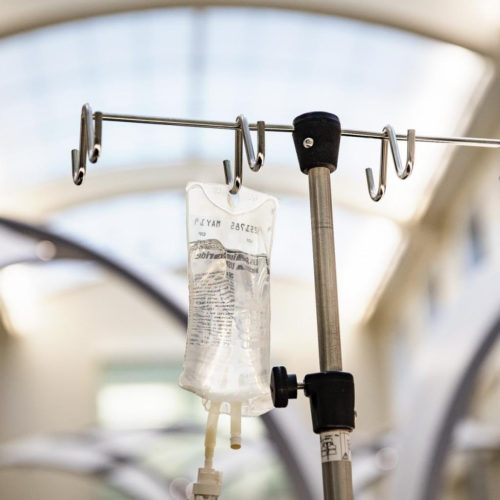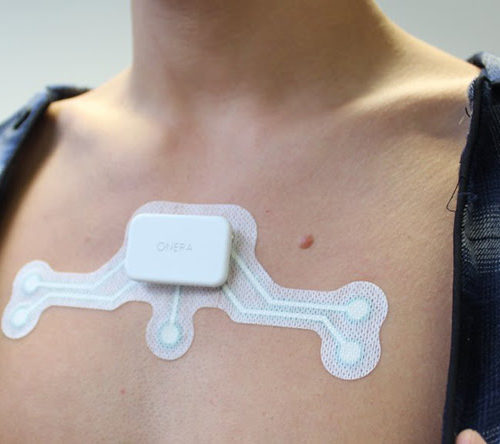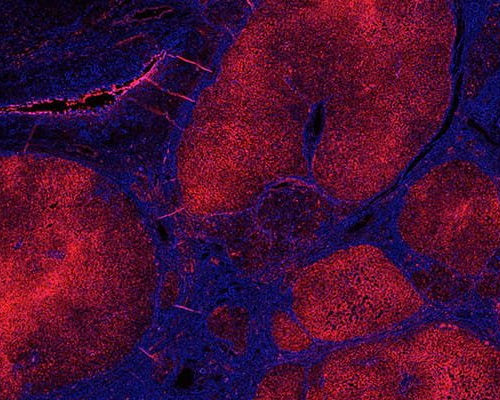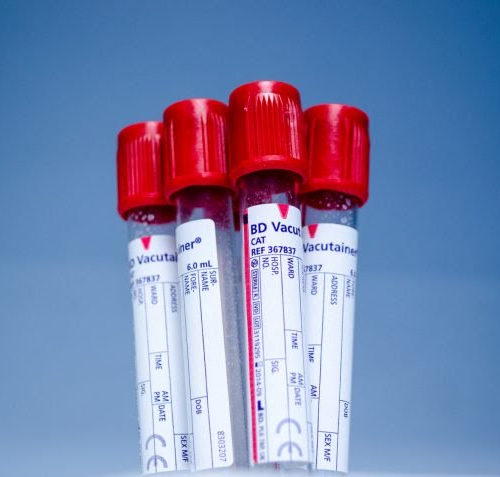by Medical College of Georgia at Augusta University In salt-sensitive hypertension, immune cells gather in the kidneys and shoot out free radicals, heightening blood pressure and damaging this pair of vital organs, scientists report. These highly reactive chemicals, also called reactive oxygen species, or ROS, are a byproduct of our body’s use of oxygen that...
Skin cancer diagnosis apps are unreliable and poorly regulated, study shows
by University of Birmingham Smartphone apps used as ‘early warning systems’ for skin cancer are poorly regulated and frequently cannot be relied upon to produce accurate results, according to new analysis by experts at the University of Birmingham. Skin cancer detection apps are designed to ensure that the right people seek medical attention by providing...
New treatment discovered for rare eye disease may prevent blindness
Cedars-Sinai research published in the New England Journal of Medicine supports FDA approval of drug for thyroid eye disease CEDARS-SINAI MEDICAL CENTER LOS ANGELES (Feb. 9, 2020) — Patients with thyroid eye disease who used the minimally invasive insulin-like growth factor I blocking antibody, teprotumumab, experienced improvement in their symptoms, appearance and quality of life,...
Shape-shifting stem cells are key to cancer metastasis and immune evasion
MEMORIAL SLOAN KETTERING CANCER CENTER Just as people tend to become stuck in their ways as they grow older so too do cells. Neurons in the brain don’t one day decide to become heart cells; skin cells repair wounds with skin cells rather than kidney cells. Cancer cells, on the other hand, are like perpetual...
Onera Bioimpedance Patch to Detect Sleep Apnea
Onera Health, a company headquartered in Silicon Valley but with R&D offices in the Netherlands, has developed a bioimpedance patch, to be worn on the chest, that can detect sleep apnea. It has just been successfully trialed in 25 patients and the results show that it is about as accurate as automatic scoring using a...
Study: Two Enzymes Control Liver Damage in NASH
As much as 12 percent of adults in the United States are living with nonalcoholic steatohepatitis (NASH), an aggressive condition that can lead to cirrhosis or liver cancer. After identifying a molecular pathway that allows NASH to progress into liver cell death, University of California San Diego School of Medicine researchers were able to halt...
Anti-Leukemia Compound Induces Complete Remission in Mouse Models
A Phase I clinical trial, using a structurally related analog of the compound, is currently enrolling patients. An anti-cancer compound developed at the University of Michigan has shown “profound” activity in mouse models against two subtypes of leukemia — representing up to 40% of patients — a U-M research team reports in the Journal of...
How the brain’s immune system could be harnessed to improve memory
by RMIT University When it comes to memory, immune cells are known as the “bad cops” of the brain. But new research shows they could also be turned into “good cops” to power memory and learning. Inflammation can send the brain’s immune cellsinto damaging hyperdrive, and this has been linked to neurodegenerative diseases that affect...
Cannabis use consistently leads to increase in susceptibility to false memories
by Bob Yirka , Medical Xpress A team of researchers from The Netherlands, Belgium, Australia, Germany and the U.S. has found evidence showing that the use of cannabis consistently leads to an increase in susceptibility to false memories. In their paper published in Proceedings of the National Academy of Sciences, the group describes double-blind, randomized,...
Brain-wave pattern can identify people likely to respond to antidepressant, study finds STANFORD MEDICINE
A new method of interpreting brain activity could be used in clinics to help determine the best treatment options for depression, according to a Stanford-led trial. Stanford researchers and their collaborators used electroencephalography, a tool for monitoring electrical activity in the brain, and an algorithm to identify a brain-wave signature in individuals with depression who...








